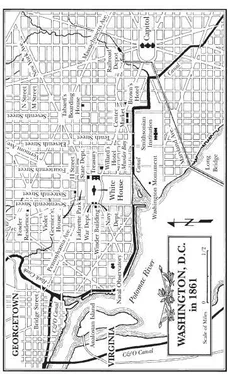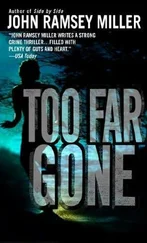John Miller - The First Assassin
Здесь есть возможность читать онлайн «John Miller - The First Assassin» весь текст электронной книги совершенно бесплатно (целиком полную версию без сокращений). В некоторых случаях можно слушать аудио, скачать через торрент в формате fb2 и присутствует краткое содержание. Жанр: Исторический детектив, на английском языке. Описание произведения, (предисловие) а так же отзывы посетителей доступны на портале библиотеки ЛибКат.
- Название:The First Assassin
- Автор:
- Жанр:
- Год:неизвестен
- ISBN:нет данных
- Рейтинг книги:3 / 5. Голосов: 1
-
Избранное:Добавить в избранное
- Отзывы:
-
Ваша оценка:
- 60
- 1
- 2
- 3
- 4
- 5
The First Assassin: краткое содержание, описание и аннотация
Предлагаем к чтению аннотацию, описание, краткое содержание или предисловие (зависит от того, что написал сам автор книги «The First Assassin»). Если вы не нашли необходимую информацию о книге — напишите в комментариях, мы постараемся отыскать её.
The First Assassin — читать онлайн бесплатно полную книгу (весь текст) целиком
Ниже представлен текст книги, разбитый по страницам. Система сохранения места последней прочитанной страницы, позволяет с удобством читать онлайн бесплатно книгу «The First Assassin», без необходимости каждый раз заново искать на чём Вы остановились. Поставьте закладку, и сможете в любой момент перейти на страницу, на которой закончили чтение.
Интервал:
Закладка:
Lucius came back in. “Looks clear. There’s a light comin’ from the manor, but I don’t think you’ll be seen. Ride quiet till you hit the main road, and then follow my directions. Be careful, too. Don’t travel too fast. It’s easy to go the wrong way in the dark.”
They led the horses from the stables. Lucius helped Portia onto hers and then put his hand on Joe’s shoulder.
“You take good care of her.”
“Don’t worry, Lucius. We’re a team now.”
Lucius looked at his granddaughter. “If you’re caught, destroy the photo. If Mr. Bennett hears about it, he’s gonna get madder than we’ve ever seen. From now on, there’s only one person who should see that picture, and that’s Abe Lincoln.”
TEN
FRIDAY, APRIL 19, 1861
The parade of visitors would arrive soon. Faintly through the door, he could hear one of his secretaries lecturing a couple of them in the waiting room. These high-class beggars would march in and out of his office twenty-four hours a day for four whole years, he supposed. Sitting down with each individual petitioner, hearing him describe his important connections in dull detail, reading his reliably flattering letters of introduction, and listening to him grovel for a minor office-some days it made him little more than the national appointment-maker, the commander-in-chief of a vast system of political patronage. The party hacks would have liked nothing better than for the president to devote himself exclusively to this task. They seemed more concerned with pestering him about the postmaster of Marshall, Michigan, than with letting him concentrate on the disaster in Charleston. There might be a crisis of union-but they had friends and relatives who needed jobs!
Sitting in a high-backed chair, with his feet propped on his desk, Abraham Lincoln decided to wait a few minutes before beginning the revue. He gazed across his room in search of a distraction. Maps were good for that, and three hung on the east wall. The one of Charleston Harbor, all the way to the left, would have to come down soon. It had been the first one up, and he had spent many hours studying it. He knew its markings so well he hardly needed to look at it anymore. Little Sumter, surrounded by forts and batteries, never stood a chance. Now the map annoyed him. It was a symbol of his first failure in office, though it was true that he had inherited the problem from the previous administration. Perhaps there was nothing he might have done to prevent Fort Sumter from falling, short of permitting Southern secession. Whatever the circumstances, this was his watch. He would have to take final responsibility for what had happened there. He would order that map removed this very day.
The next map, to its right, displayed all the Southern states, from Virginia to Texas. They were starting to call themselves the Confederate States of America, but Lincoln insisted that nobody in his government use that name. They were still part of the Union because secession was unconstitutional. This was an important legal point, even though it did not conceal the obvious fact that it was a map of enemy territory. Lincoln had it on his wall for a military purpose. In just a few hours, his cabinet would announce a naval blockade of the Southern ports. This was General Scott’s idea, and Lincoln agreed that a successful blockade would put a strangling pressure on the region’s export-dependent economy. Weeks would pass before it took full effect, but the decision to do it would provide a signal to the public that the president now believed the national emergency would last into the summer.
This thought led his eye to the right, where a third and final map was tacked to the wall. Here was northern Virginia, from Harper’s Ferry in the west to the widening of the Potomac in the east, where it flowed into the Chesapeake Bay. Washington sat about midway between these two points, and Lincoln worried about its vulnerability from every direction. If Virginia assembled an army soon, it might seize the capital without much of a fight. The city was almost completely defenseless against a few boats floating up the river for a bombardment too. Fort Washington, on the Maryland shore, was essentially unmanned. Alexandria, the port on the Virginia side, probably would welcome the raiders and supply them. Lincoln believed he needed more soldiers in a hurry.
In one gangly motion, the president grabbed a brass cylinder from his desk, swung his feet to the ground, and rose. There was a window just to his right, stretching almost from the floor to the ceiling. From this second-story vista, he could see for miles to the south. He twisted the brass tube, and the thing expanded to three times its original length. It was a telescope, and Lincoln now raised it to his eye for a long look. He spotted the buildings of Alexandria in the distance. The docks on the waterfront were busy, as usual. The city was a rail terminal for the whole South-travelers destined for Washington by train would end up here, where they could get on another train and cross the Long Bridge or take a ferry to the wharves on Sixth Street. Lincoln could see one of these boats approaching Washington now. He might have watched it come in, except for the knock on his door.
“Yes?” called out the president, wearily. John Hay, his young secretary, stepped inside.
“Mr. President, perhaps we should get started. The lines will only grow longer today, especially if we don’t get through a few of these people before your other meetings this morning.”
“I guess somebody has to keep me on time, no matter how badly I want to avoid these office seekers,” said Lincoln with a forced smile. “All right, Hay, send one of them in.”
Lincoln returned his spyglass to its place on the desk. If he had continued to look through the window, he would have observed the George Page , a ferry steamer that shuttled people between Alexandria and Washington. On this trip, it was moving in Lincoln’s direction. The ship stopped at a dock and unloaded a handful of passengers.
The last person to disembark was a man who had made it to Alexandria only the day before, after spending the night in Richmond. He slipped a bank note to a porter and asked him to look after his trunk-he would send for it in a few hours. Unencumbered, the man now turned his sights to the city spread before him.
Mazorca had arrived.
Lucius awoke before anybody else in the Bennett manor. Truth be told, he had hardly slept after watching Portia and Joe ride away. Nerves had kept him up for long stretches. Even when he dozed fitfully, his head was full of questions and worries: Where were they now? How far had they gone? What if somebody saw them on the roads? It occurred to him that he might never know their fate. If Portia and Joe were caught between here and Charleston, they would be brought back. That would probably happen in the next few days, if it were to happen at all. If they were captured outside of South Carolina, their fate would depend on whether they revealed who owned them. They would be held in prison until they confessed or someone claimed them. If neither came to pass, they would be sold at auction.
If they actually made it all the way to Washington, thought Lucius, he probably would not hear about it. Confirmation simply would not come. They did not know how to write, and he did not know how to read. Even if Portia and Joe had somebody do the writing for them, there was no chance of Bennett letting a note pass through to him. So Lucius figured no news would be good news-or at least it would not be bad news. He would have to learn to cope with the anxiety of not knowing.
A rooster crowed in the distance. Lucius barely noticed as he wandered around the mansion. He moved with the careful silence of a thief, avoiding the squeaky floorboards. The house sometimes seemed empty during the daytime, with no family in it. Now it was desolate. Bennett only occupied a fraction of its rooms-mainly a study, the dining room, and his bedroom. Yet he insisted on having the whole place kept up, as if it were full.
Читать дальшеИнтервал:
Закладка:
Похожие книги на «The First Assassin»
Представляем Вашему вниманию похожие книги на «The First Assassin» списком для выбора. Мы отобрали схожую по названию и смыслу литературу в надежде предоставить читателям больше вариантов отыскать новые, интересные, ещё непрочитанные произведения.
Обсуждение, отзывы о книге «The First Assassin» и просто собственные мнения читателей. Оставьте ваши комментарии, напишите, что Вы думаете о произведении, его смысле или главных героях. Укажите что конкретно понравилось, а что нет, и почему Вы так считаете.












